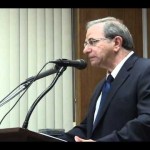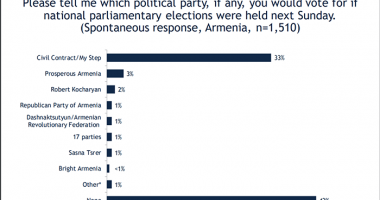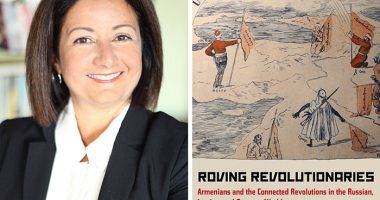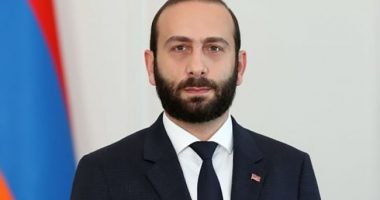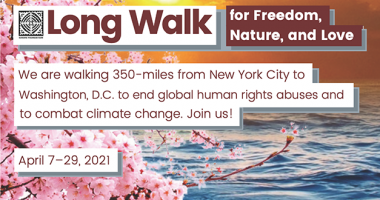LOS ANGELES — The 2020 “Genocide Resistance” Research Cluster, University of Southern California (USC) Dana andDavid Dornsife College of Letters, Arts and Sciences has organized an international workshop on “Resisting the Path to Genocide: Groups and Networks.” The two-day conference will take place on September 7-8, 2012 according to the schedule indicated below.
The general theme of the conference seeks to answer the following questions: “How do opposition groups form? Which social, cultural and political conditions support the development of the group opposition and resistance? What kind of groups whether informal networks, private organizations or public institutions, are most likely to resist discrimination and violence in genocidal societies? How do we classify groups of resisters? What oppositional strategies have proven to be most effective at the group level? Do group activities have an impact, and can they help stop the violent radicalization of a genocidal society?”
Prof. Vahram Shemmassian, Director of the Armenian Studies Program at California State University, Northridge, and an expert on Musa Dagh, will be one of the presenters among scholars participating from the United States, Europe and Africa. He will focus onthe reasons why the majority of the Armenians of Musa Dagh elected to defy the Ottoman government’s deportation orders in the summer of 1915 that aimed at genocide. He will also dwell on the process of the resistance that had a succesful outcome.
The conference is open to the public. Those who plan to attend are requested to contact AlidaLiberman, research assistant, [email protected].
Friday, September 7: USC, University Park Campus, Doheny Library, Library Friend Lecture Hall
Morning Session: 10:00 – 12:30
Welcome remarks
Walter Richmond – German, Russian, and Classical Studies; Occidental College – Circassian Efforts to Broker Peace with Russia
VahramShemmassian –Armenian Studies; California State University, Northridge – The Decision and Process of the Musa Dagh Resistance to the Armenian Genocide
Tanja von Fransecky – History, Technische Universität Berlin, Germany – Group Escaping from Deportation Trains in France, Belgium and the Netherlands
Luncheon
Keynote address: 1:30 – 3:00
Mark Roseman – Pat M Glazer Chair for Jewish Studies & Professor in History, Indiana University Bloomington – Rescued from Memory: Hidden Networks and Hidden Jews in the Holocaust
Afternoon session 3:30 – 5:30
Michael Bazyler – Law, Chapman University – Lawyers as Resisters to the Holocaust; Lawyers as Perpetrators of the Holocaust; Lawyers as Bystanders to the Holocaust
Jadwiga Biskupska – History, Yale University – The Polish Intelligentsia and the Primacy of Jewish Victimhood
Saturday, September 8:VILLA AURORA, Pacific Palisades
Morning Session: 10:00 – 12:30
Susanne Beer – Sociology, University of Duisburg-Essen, Germany – Information networks of rescuers in Nazi Germany
Tim Gallimore – Higher Learning Commission, Interdisciplinary Genocide Studies Center – The Role of External Groups in Combating Genocide Ideology and Genocide Denial:
The Case of Rwanda
Oscar EdororUbhenin – Public Administration, Ambrose Alli University, Nigeria – Informal Networks and Resistance to Mass Violence in Nigeria
Concluding remarks
HassounaMosbahi, Feuchtwanger fellow (Villa Aurora) – Readings from his novel “A Tunisian Tale” in Arabic and in English.
Prof. Shemmassian to Present Musa Dagh at USC international workshop on Resisting the Path to Genocide
- No comments
- 2 minute read
High-Ranking Clergy in the Defendant’s Seat
By KRIKOR KHODANIAN The political developments unfolding in Armenia have taken a…
- MassisPost
- July 7, 2025
- No comments
- 3 minute read
Open Letter on the Proposal to Rename the Armenia-Turkey Border Crossing After Talat Pasha
We express our deep concern and disappointment regarding the recent proposal introduced…
- MassisPost
- July 3, 2025
- One comment
- 2 minute read
Pashinyan’s Visit to Turkey and Beyond
By KRIKOR KHODANIAN At the invitation of Turkish President Recep Tayyip Erdoğan,…
- MassisPost
- June 29, 2025
- No comments
- 3 minute read
“I Still Can’t Believe What Happened on June 20”
By LUSYEN KOPA Exactly three months ago, I wrote an article titled…
- MassisPost
- June 26, 2025
- No comments
- 4 minute read



